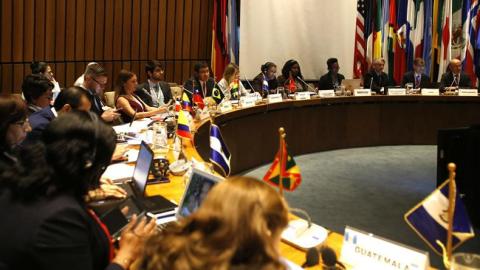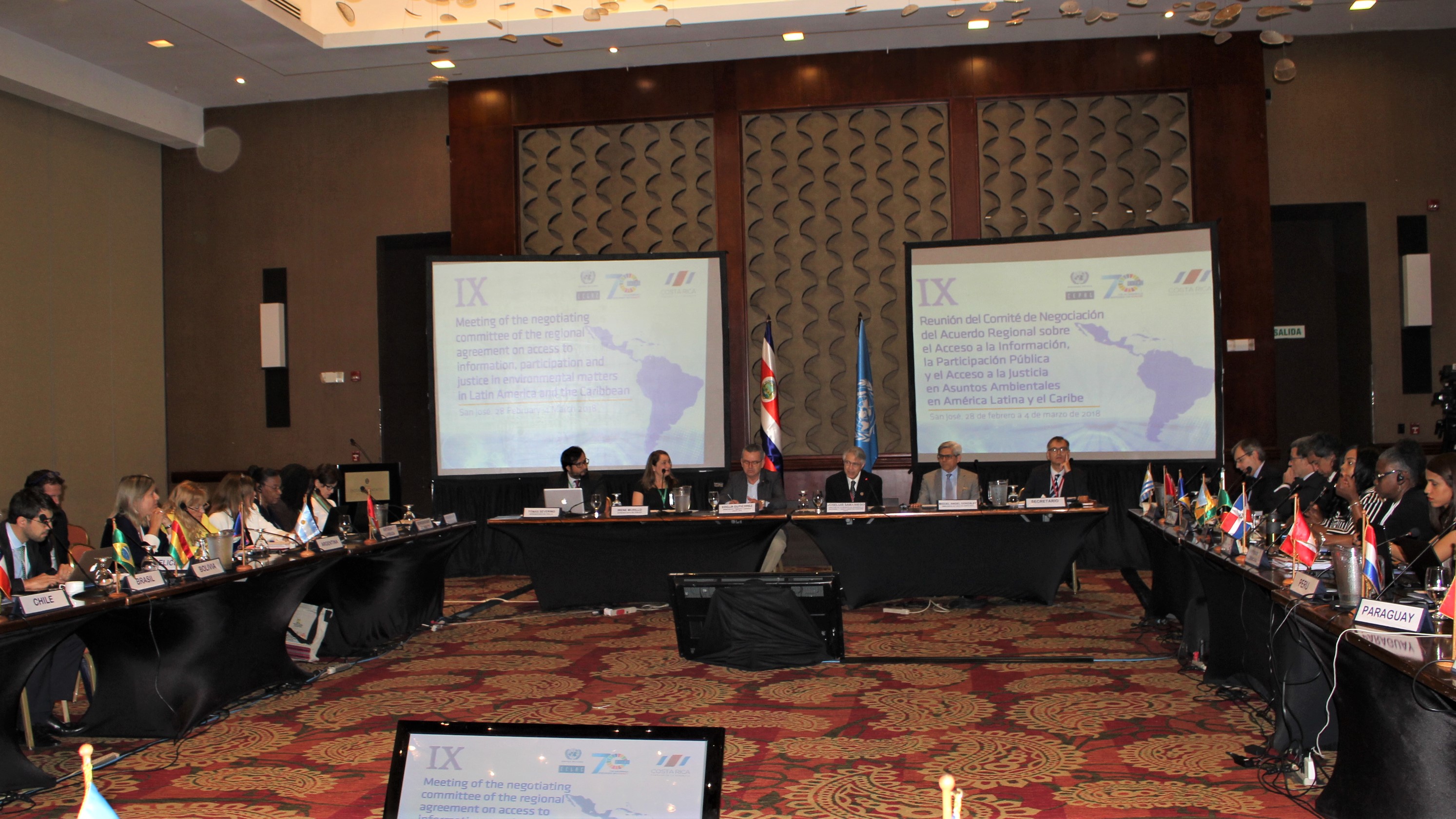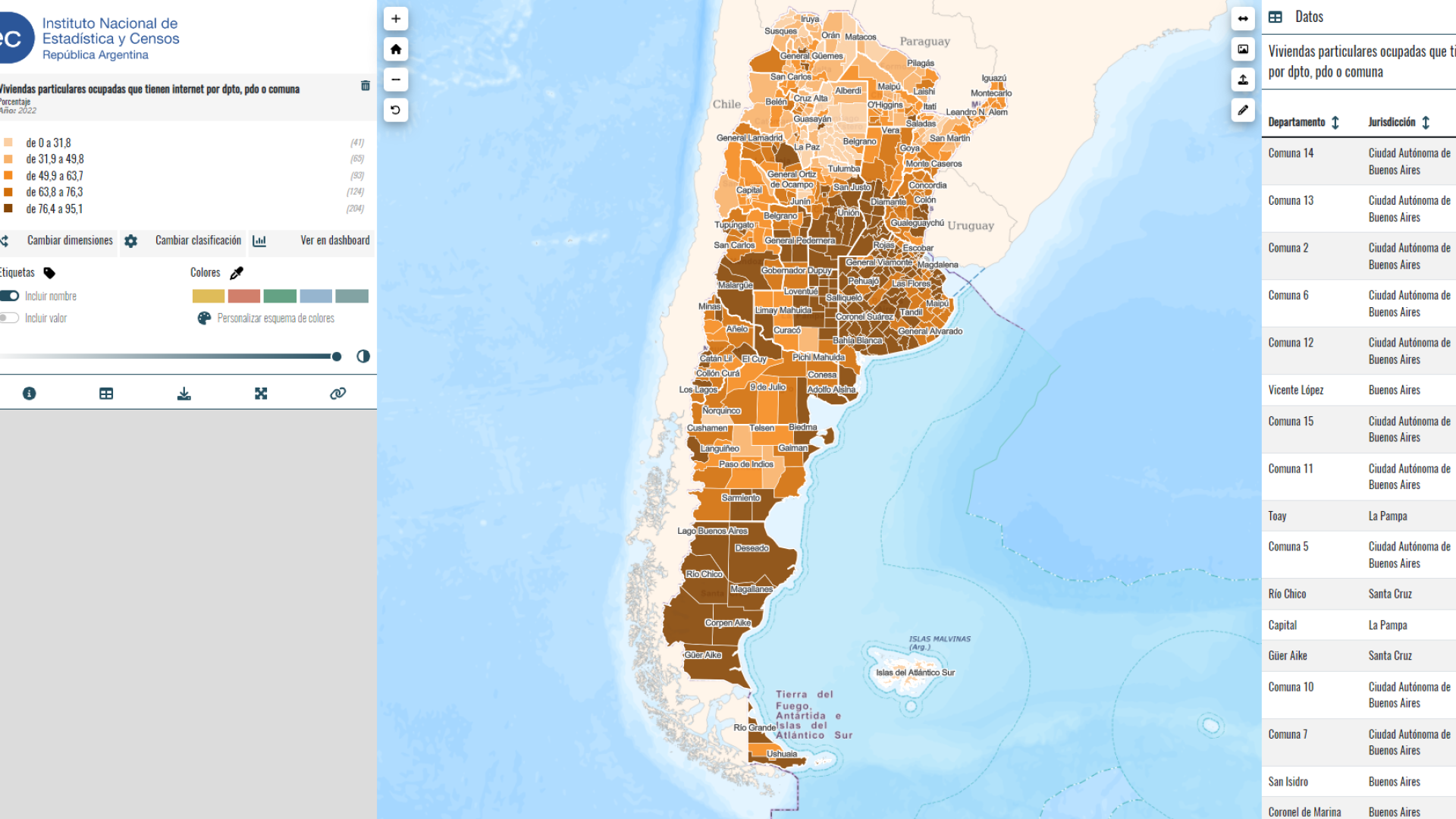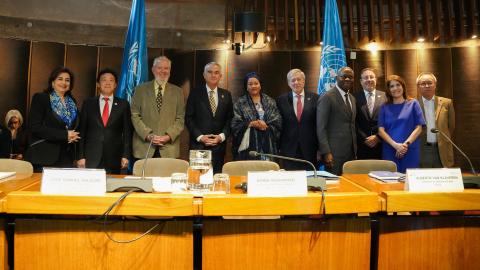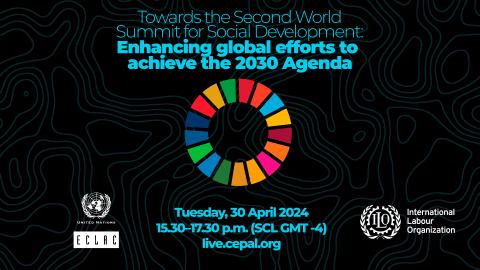Delegates from 24 countries in Latin America and the Caribbean, along with representatives of the public and experts from international bodies, met in Costa Rica today to begin the Ninth Meeting of the Negotiating Committee of the Regional Agreement on access to environmental information, participation and justice (Principle 10 of the Rio Declaration on Environment and Development), where they expect to finalize the drafting of a legal text that will become the first of its kind in the region.
The gathering, to be held through Sunday, March 4, seeks to forge an unprecedented agreement on environmental democracy that in the long term would allow for establishing actions that change the way public policies are made and would contribute to building more inclusive, peaceful and just societies.
The meeting was inaugurated this Wednesday, February 28 in the Costa Rican capital of San Jose, by Joseluis Samaniego, Director of the Sustainable Development and Human Settlements Division of the Economic Commission for Latin America and the Caribbean (ECLAC) – the United Nations regional organization that holds the technical secretariat of the negotiation process, which is currently presided by the governments of Chile and Costa Rica.
In his opening remarks, Samaniego highlighted the efforts made by all the delegations since the start of the negotiations, in 2014, and vowed that the current ninth meeting of the Negotiating Committee in Costa Rica will culminate the process to forge this regional accord.
“The expectations for the ninth meeting are clear: to review pending matters and adopt the final text, an outcome that we expect to achieve on Sunday, March 4. Out of this meeting that starts today a powerful agreement can arise, the region’s first environmental treaty, a second-generation accord that brings environmental protection together with human rights and rights of access, and places the focus on equality for sustainable development, aiming to leave no one behind,” ECLAC’s representative stated.
Other participants in the inaugural ceremony included Irene Murillo (from Costa Rica) and Tomás Severino (from Chile), who form part of the negotiation process as representatives of the public. Along with expressing gratitude for the progress made during the Committee’s eight previous meetings, they urged delegates to tackle the pending challenges, especially the practical and legal implications that an agreement of this kind entails.
“We consider that the rights to access environmental information, participate in decision-making and to environmental justice are vital for bringing human rights for a healthy environment to the real world. This can truly change the lives of the people in our countries,” Irene Murillo said.
“We have a historic opportunity to impact our region’s sustainable development in the medium and long term, looking to the future, not the past,” Tomás Severino stated. “We have a great responsibility to our fellow citizens; the time has come to finish this agreement. We must be bold and effective to seal a binding and robust agreement that allows us to finalize the first phase of this process.”
Meanwhile, the Chilean Ambassador to Costa Rica, Miguel Ángel González, stressed that any decision made by an authority overseeing environmental matters must consider not only the government’s technical criteria but also include a participatory analysis of what that decision means on the ground and for the populations involved. “Chile has always sustained that this instrument must set a high standard, with the goal of establishing a long-term vision and with a sense of direction regarding where we want to be heading. A ‘transformative agreement,’ as President Bachelet has said. With these elements in mind, we trust that in this round, the negotiations will come to a close and we will crown the effort that began in Río+20, with the adoption of an ambitious text,” González said.
Finally, Costa Rica’s Minister of Environment and Energy, Edgar Gutiérrez, officially inaugurated the gathering. In his remarks, he highlighted that this is the most important international negotiation process on human rights and environmental matters in recent decades, as John Knox, the United Nations Special Rapporteur on human rights and the environment, acknowledged at the meeting held in Argentina in August 2017 (the seventh meeting of the Negotiating Committee).
“The importance of achieving a robust instrument for Latin America and the Caribbean that strengthens the application and compliance with rights of access is undeniable,” Minister Gutiérrez indicated. “I encourage and invite you to work for the region, for environmental democracy, with a constructive, positive and progressive spirit, striving for the flexibility needed to reach consensus on a Regional Agreement that can ensure environmental protection, the protection of life and of personal integrity for this generation and those to come.”
During the inaugural session, homage was also paid to Ambassador Dámaso Luna, a prominent Mexican diplomat and environmental expert who participated in the first rounds of negotiations and passed away in December 2017.
In addition, on the first day of the Ninth Meeting of the Negotiating Committee of the Regional Agreement on Principle 10, a book launch will be held for Access to information, participation and justice in environmental matters in Latin America and the Caribbean: Towards achievement of the 2030 Agenda for Sustainable Development. This document by ECLAC reviews the laws and institutional frameworks that safeguard the rights of access to information, participation and access to justice in environmental matters consecrated in Principle 10 of the Rio Declaration on Environment and Development in the region’s 33 countries, benefitting from the material compiled by the Observatory on Principle 10 in Latin America and the Caribbean. The publication describes recent developments in this area in the region and the dynamism of the issues at stake. It also includes examples of good practices and emerging themes. The book will be presented in San Jose by Joseluis Samaniego and Patricia Madrigal, Costa Rica’s Deputy Environment Minister.
The meeting in Costa Rica will conclude on Sunday, March 4, with a high-level session in which participants will include Luis Guillermo Solís, President of Costa Rica; Alejandro Solano Ortiz, Deputy Minister of Foreign Affairs and Worship; and Alicia Bárcena, ECLAC’s Executive Secretary.
